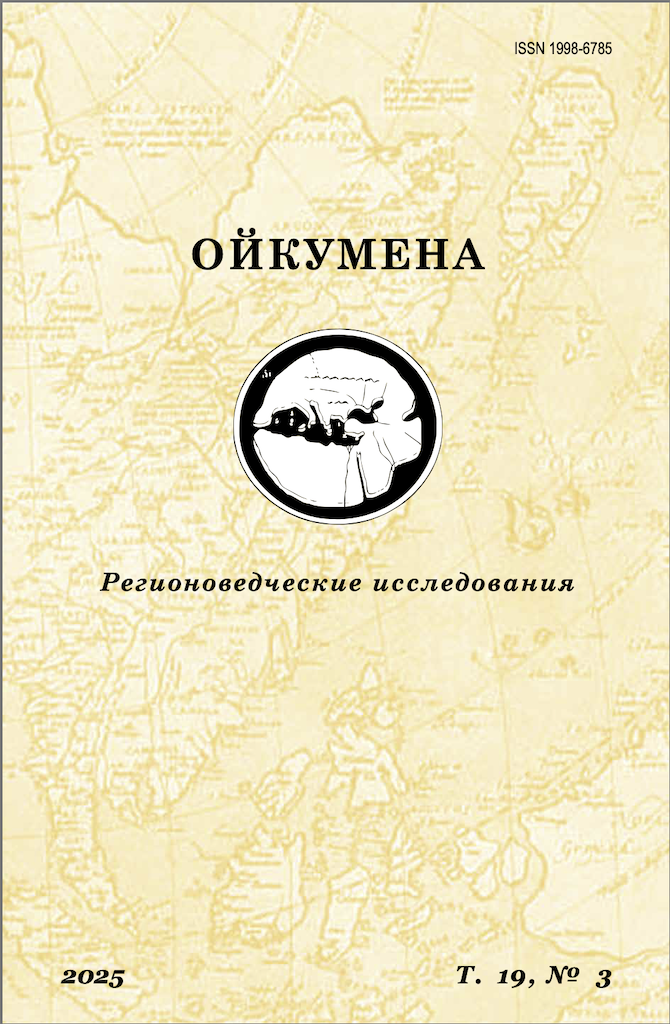employee
Sankt-Peterburg, St. Petersburg, Russian Federation
UDC 00
The article examines the subjects of cultural genesis of the modern cultural-historical type – network culture: social network and neural network. It is shown that along with two other typological criteria – the principle of cultural genesis (spontaneous growth of network artifacts) and the main morphological result of cultural genesis (global performance and virtual reality) – the subject of cultural genesis of network culture becomes an indicator of the emergence of a completely new cultural and historical type, which comes not only to replace the culture of Postmodernism, but also to replace the creative culture that existed in the world since the Renaissance, and to replace an earlier form of culture – traditional culture, which still survives in certain regions of the Earth. The key similarities and differences of the subjects of network culture, their impersonal nature, as well as the spontaneity of the formation of the structure of the social network and the totality of the neural network and artificial intelligence capable of learning are demonstrated.
social network, neural network, network culture, spontaneous cultural genesis, virtual reality, global performance
1. Aristotle. Categories // Collected Works in 4 volumes. Vol. 2. Moscow: Mysl, 1978. P. 52–90. (In Russ.).
2. Barthes R. The Death of the Author // Selected Works: Semiotics. Poetics. Moscow: Progress, 1994. P. 384–391.
3. Benveniste E. Categories of Thought and Categories of Language // General Linguistics. Moscow: Progress, 1974. P. 104–114. (In Russ.).
4. Vernadsky V. I. Scientific Thought as a Planetary Phenomenon. Moscow: Science, 2013. 475 p. (In Russ.).
5. Husserl E. Cartesian Meditations. Moscow. Academicheskii proekt, 2010. 229 p. (In Russ.). EDN: https://elibrary.ru/QWYHCN
6. Descartes R. Reflections on First Philosophy // Collected Works in 2 vols. V. 2. Moscow. Mysl, 1994. P. 3–73. (In Russ.).
7. Kant I. Analytics of Concepts // Critique of Pure Reason. Moscow. Academicheskii proekt, 2020. P. 76–114. (In Russ.).
8. Leontiev A. N. Evolution of the Psyche. Moscow. Moscow Psychological and Social Institute; Voronezh: Publishing House of NPO "MODEK", 1999. 416 p. (In Russ.).
9. Lorenz K. The Great Parliament of Instincts // Aggression, or the so-called evil. Moscow. Progress, 1994. P. 91–113. (In Russ.).
10. Neuron. Signal Processing. Plasticity. Modeling: a fundamental guide / Aleksandrov Yu. I., Anokhin K. V., et al. [ed. by E. N. Sokolov, V. A. Filippov, A. M. Chernorizov]. Tyumen: Publishing house of Tyumen state. University, 2008. 547 p. (In Russ.).
11. Ryle G. Categories // The concept of consciousness. Moscow: Idea-Press, House of intellectual books, 1999. P. 323–338. (In Russ.).
12. Searle J. The mind of the brain - a computer program? // In the world of science. 1990. No. 3. P. 7–13. (In Russ.).
13. Foucault M. Words and Things: Archaeology of the Humanities. Moscow: Progress, 1977. 488 p. (In Russ.).
14. Huxley O. Brave New World. Moscow: AST, 2023. 352 p. (In Russ.).
15. Chalmers D. The conscious mind: In search of a fundamental theory. Moscow. URSS, 2019. 512 p. (In Russ.).
16. Scheler M. The Position of Man in the Cosmos // Selected Works. Moscow. Gnosis, 1994. P. 129–194. (In Russ.).
17. Schelling F. Presentation of My System of Philosophy. St. Petersburg: Nauka, 2014. 348 p. (In Russ.).











